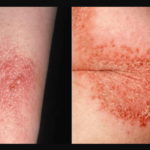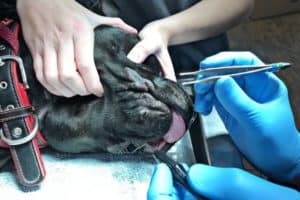Your skin reflects your health and well-being; thus, it’s natural that you would want to know how long it takes for your skin to heal. Continue reading and learn the answer to this important question.
How long does it take for skin to heal? For minor skin scrapes, the skin typically heals within 3 days to one week. For deeper wounds, they may take longer to heal, from 1 to 2 weeks. Take note that the deeper the wound, the longer the time will be for healing.
The skin has several layers that serve as the body’s first wall of protection against the entry of pathological microorganisms. So, the skin is an essential organ that helps prevent infectious diseases from entering the body.
To learn more about how long it takes for the skin to heal, below are specific examples of skin conditions and the duration of their healing process.
Examples of Skin Conditions and the Length of Time for the Skin to Heal
1. Dry Skin
When you have dry skin, the length of time for your skin to heal may take longer as long as you remain to have dry skin. A good remedy to dry skin is to moisturize it daily to prevent your skin from flaking. Oiling or moisturizing your skin on a daily basis is a great skincare routine for you.
On the other hand, if your skin only became temporarily dry, you can apply a moisturizer or oil to immediately relieve skin dryness. However, you will have to apply it for a week or two to ensure that your skin remains fresh and hydrated.
2. Skin Tear
Skin tears are small wounds and are not often serious. You can wash the skin tears with mild soap and water before applying an antiseptic, such as Betadine or iodine. These wounds may heal within 3 to 7 days if there are no complications. The tear should not be an open, gaping wound that needs stitches because if it does, it’s no longer a tear but a major wound.
Examine the wound and determine if it needs sutures or not. If the tear is superficial and small, it would not need stitches.
3. Irritated Skin
In this case, the length of time for the skin to heal would depend on the type of skin irritation. Skin irritation due to allergies can take a few hours to heal after the intake of allergy medications. However, severe allergies can take up to one week to clear up.
Irritation due to prickly heat takes longer to heal as it’s caused by high temperature or heat. For as long as you’re in hot weather conditions, prickly heat skin irritation will recur. Thus, you have to treat it daily with anti-itch lotions or anti-prickly heat powders.
Other types of skin irritation are caused by infectious diseases, such as measles and chickenpox. In these cases, the healing time usually lasts for months. For this reason, you would have to diligently apply certain skincare products to prevent scarring and permanent damage to your skin.
Skin irritation caused by contact dermatitis can last from 2 to 4 weeks if treated properly. However, this skin condition can also last for months, especially when proper treatment is delayed.
4. Skin Graft
For skin grafts, it will take longer for the graft site to heal than the donor site. After the surgery, the donor site can heal from 1 to 2 weeks, while the graft site can heal from 3 to 4 weeks. An accelerated healing process can also be achieved when wounds are properly and regularly treated with antiseptic and necessary oral medications prescribed by your doctor.
In cases when proper treatment is not observed, the skin graft might get infected. As a result, it would take a longer time to treat the wound, depending on the severity of the infection. Also, prevent unnecessary movements that would stretch the skin and can cause a tear in the graft site. Healing and recovery would be slower when this happens.
Factors That Affect the Length of Time for Your Skin to Heal
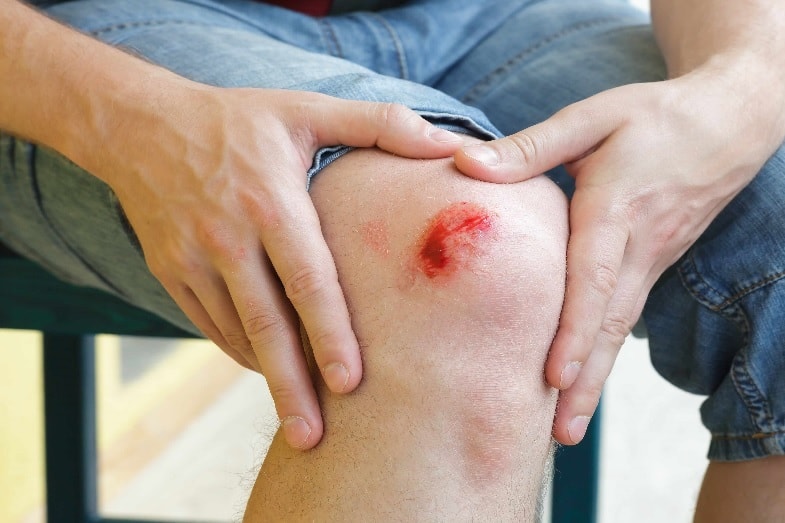
There are various factors that affect how long your skin would heal in different skin conditions. These factors include:
1. Immune System
Your immune system is vital to quickly heal the skin and any other part of your body. If your immune system is efficiently working, faster skin healing is expected. However, if your immune system is dysfunctional, it will take longer for your skin problems to heal.
2. Hygiene
Unhygienic practices will only promote the invasion of harmful microbes and infection. Observing proper personal and environmental hygiene are some of the effective ways to heal the skin faster.
You should regularly wash and clean the affected skin area with soap and water and some antiseptic if needed.
Dirty surroundings can also attract vectors or agents of infectious diseases that could enter your skin and aggravate your condition. For this reason, make sure to maintain cleanliness in your surroundings at all times.
3. Medications
Certain medications can prevent your skin from healing quickly. One example is anticoagulant medications, which can impair the function of your immune system and prevent blood coagulation. The mechanism of certain anti-inflammatory drugs can also prevent faster wound healing.
4. Proper Treatment
Prompt and proper treatment can speed up the skin’s healing process. Prompt treatment prevents skin conditions from worsening. Similarly, using correct and prescribed topical medications for your skin problem can hasten wound healing.
5. Type of Skin
Your skin type also contributes to how quickly your skin can heal. Having excessively oily skin can deter healing since the production of excess oil can prevent prompt action of some medications. Having extra dry skin also has the same effect.
You have to maintain the proper moisture of your skin, so the cells can regenerate properly and efficiently.
6. Age
Older people have slower physiological functions, including healing; so, younger people tend to heal more quickly than the elderly. Furthermore, the preventive response of the skin along with the body’s immune response becomes slower during the aging process. These slow responses will also reflect slower metabolic functions in older people.
7. Nutrition
The food that you eat affects the way your skin heals. An unhealthy diet would delay the healing of your skin. Eat healthy foods such as vegetables, fruits, and lean meat. Lessen your intake of unhealthy fats, sugar, and salt to help strengthen your skin and render it supple and healthy.
Avoid illicit drugs and addictive substances, such as cigarettes and alcohol. Alcohol addiction can cause irreversible liver cirrhosis. Cigarettes not only stain your gums and fingers but also cause cancer.
8. Metabolic Conditions
Metabolic conditions like diabetes mellitus and hyper- and hypoadrenalism can cause serious skin problems that are difficult to cure. Examples of these skin conditions are gangrene caused by uncontrolled high blood sugar (diabetes) and dark patches or lines on the skin (adrenal diseases).
Hyperadrenalism (Cushing’s syndrome) is the increased secretion of adrenal hormones, which cause a variety of symptoms. These symptoms include acne, stretch marks, and bruises on your skin since your skin becomes extra sensitive.
How to Speed Up the Time It Takes for Skin to Heal
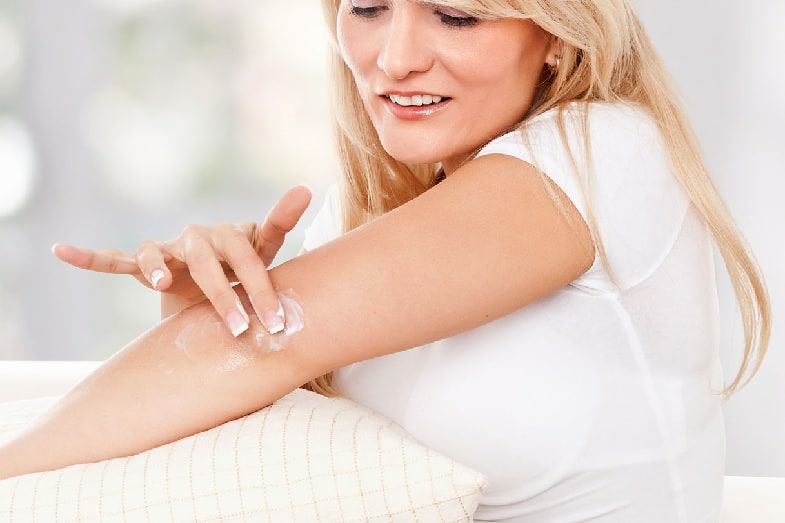
You can speed up the time for your skin to heal by observing the following recommendations:
1. Wash Daily
Taking a shower or bath daily must be a part of your everyday regimen. This practice would ensure that your dead skin cells are sloughed off daily, encouraging new skin cells to grow. Aside from cleansing your skin, bathing could also introduce water to your skin cells, which will help them rehydrate from the outside.
When washing damaged skin areas, be careful and gentle to prevent additional injury. Wash with soap and water. Nonetheless, if the wound is big, avoid applying soap directly into the opening. Instead, apply cream or medication as directed by your doctor. Don’t self-medicate to avoid dangerous health consequences.
2. Drink More than 8 Glasses of Water a Day
Drink at least 8 glasses of water daily. Your body is composed of water in varying percentages in your cells. Around 60-70% of water should be present in your body’s cells for them to function effectively.
Internal hydration is still the best, as the water that you drink can help transport essential nutrients to the cells all over your body, including your skin cells. In addition, water promotes the elimination of toxic waste products of metabolism from the body to the various portals of excretion (kidneys, skin, lungs, and liver). Proper and adequate hydration can prevent the build-up of toxic wastes in your system that could result in toxicity or toxemia.
3. Protect Skin Tears or Wounds Appropriately
If you have skin conditions, tears, or wounds, cover them with a sterile gauze or bandage before venturing outside to prevent contamination from the environment.
When inside the house, you can uncover it to allow the skin cells to breathe. It will also prevent the growth of anaerobic bacteria, which proliferate without oxygen. Such bacterial growth is the danger of wounds that are covered for a long time.
Ideally, your household and surroundings should be clean at all times.
4. Healthy Lifestyle
To embrace a healthy lifestyle, you have to eat a balanced diet that contains:
- 30% protein
- 35% carbohydrates
- 20% good fats
- 15% vitamins and minerals
This diet indicates eating more fruits and vegetables than fats and sweets.
You also have to exercise regularly to shed off excess calories/fats. Regular exercise can boost your metabolism and enhance your blood circulation. Do it for 30 minutes to 1 hour daily, or for 1 to 2 hours every other day. Moreover, get enough sleep for at least 8 hours a day. Skin cells need to rest, too.
Again, hydrate yourself adequately by drinking water and other non-fat liquids. Avoid addictive substances and illicit drugs. These substances will reduce your cognitive skills and weaken your body’s immune system.
Observing a healthy lifestyle would ensure that your immune system is effectively functioning and that your cells are properly nourished.
5. Use Skin Care Products Suitable for Your Skin
It’s good to use skin care products that can help maintain a healthy skin. You can use moisturizers if your skin is dry and astringents if your skin is oily. However, always make sure that you’re not allergic to any of their ingredients before application.
As a precaution, only use natural, organic, and hypoallergenic products. Natural oils and plant extracts are superb choices.
How Does Skin Heal Itself?
Our skin and muscles have a limited self-healing process. However, minor wounds easily heal if complications do not occur.
The first process of skin healing is for the wound to stop bleeding. This occurs when clotting factors and platelets in your body act synergistically to stop bleeding. Blood aggregates or clots are formed to plug the wound.
The second process occurs when blood cells, specifically the white blood cells involved in the immune system, move to the site of the wound to prevent infection and invasion of infectious agents.
The third process occurs when the red blood cells, together with the other blood cells, restore the skin and regenerate new skin cells to replace the damaged ones. The number of red blood cells and white blood cells is usually increased in the affected skin area to generate warmth and smooth blood circulation.
Conclusion – How Long Does It Take for Skin to Heal?
Depending on the severity of the wound, it takes around 3 days to several months for the skin to heal. For minor skin tears, 3 to 7 days is enough for healing, but for major skin grafts or metabolic conditions, it can take several weeks or even months for the skin to heal and go back to normal.
Therefore, you must properly treat your skin wounds. Consult a skin specialist for major wounds and for skin conditions that are difficult to treat. Whether you have a minor or major skin problem, proper skin care is crucial when it comes to quick skin healing.
Follow the recommended home care instructions above, and your skin condition would surely heal in no time.


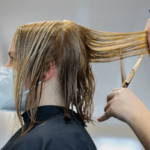
![Neutral Skin Tone Defined [and Best Colors for Neutral Skin] neutral skin tone](https://skincaregeeks.com/wp-content/uploads/2021/05/neutral-skin-tone-150x150.png)

